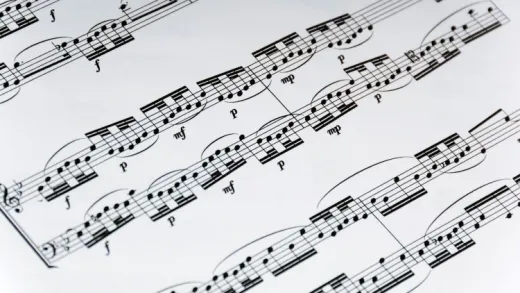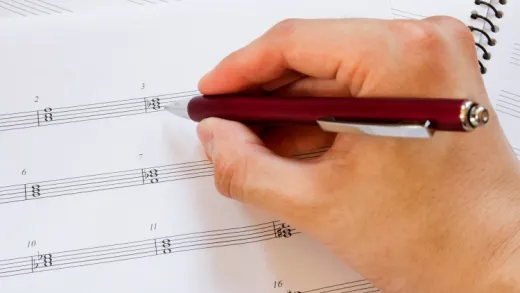Brief Summary
This music theory course is all about making you speak the language of music! With hands-on lessons and fun worksheets, you'll dive deep into understanding notes, rhythms, and more. Perfect for beginners who want to groove more with their music skills!
Key Points
-
Understanding the jargon of music
-
Step by step, hands-on music theory
-
Covering essential topics: Staff, Clef Signs, Note Values, Time Signatures, and more
-
Worksheets and answer sheets for solid learning
-
Music theory is the language of musicians
Learning Outcomes
-
Read and write basic music notation
-
Understand fundamental music rhythms
-
Gain a solid grasp of music theory concepts
-
Develop skills for improvisation and composition
-
Create a booklet of reference materials
About This Course
Learn how to speak and understand the language of music with this systematic and hands on approach of music theory.
Have you ever wanted to understand the jargon of music? Or have you wished to understand the music that you are playing in the deeper and more meaningful way?
This beginning music theory course, built to provide step by step information in a logical and systematical way, will help you do just that. Unlike many others, this is hands-on course that will cover the following topics:
The Staff & Clef Signs
Note Values & Their Rests
The Measure & Time Signatures
Ledger Lines
Repeat Signs & 1st and 2nd Endings
The Tie & the Slur
Flats, Sharps & Accidentals
The course is divided in 11 short videos, each lesson being accompanied by an outline and a worksheet. An answer worksheet is also provided. By the time you print all the documents, you will have a nice booklet with all the information that you can always refer back to and hands-on assignments that are invaluable since they help solidify the concepts learned in the video. The student should answer the question in the worksheet and check his/her work with the answer sheet. I highly recommend that the student does not skip the assignment sheets.
Music theory is very important for a musician; it gives the student a better understanding of the music he/she performs and it is a structural platform for improvisation, composition, transposition, sight-reading, etc. Music theory is the grammar of the musical language and we need to know it in order to speak the language of music correctly. It helps us understand how music fits together and why it sounds the way it does. For a person desiring to become a musician, music theory is a must.
I am looking forward to help you in any way I can. I have been a professional piano teacher for over 25 years and played the piano in many concerts, recitals, accompanying and conducting choirs over the year. I have written many pieces for choir and small ensemble and orchestrated and recorded many CDs. I will do my outmost to help you understand the topics in this course. Just ask if you need any help!
Enroll today and be on your way of becoming an accomplished musician! Learn music theory online! Thank you for taking my course.





Norma M.
yes, it was